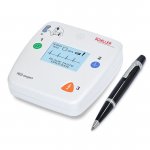
THE 27th ISICEM
'Over 230 established and emerging international leaders in intensive care and emergency medicine will provide participants with a state-of-the art review of the most recent advances in diagnosis, monitoring, and management of critically ill patients,' Jean-Louis Vincent, Head of the Department of Intensive Care, Erasme Hospital, Free University of Brussels, Belgium, promises the expected 5,000…
























